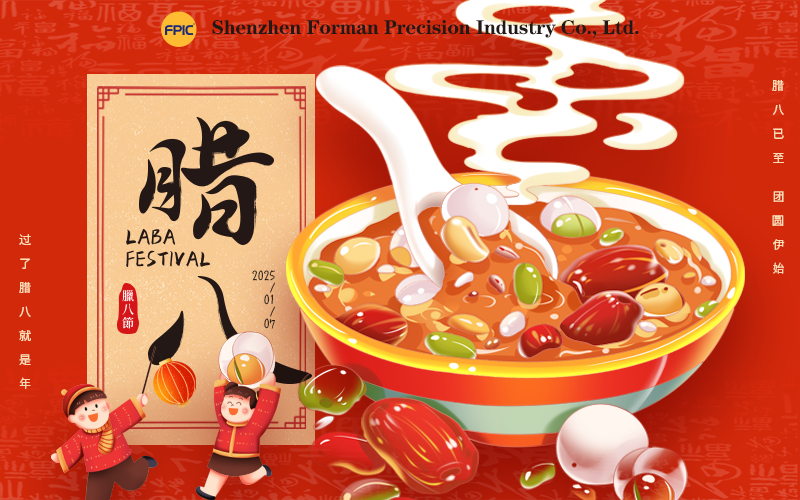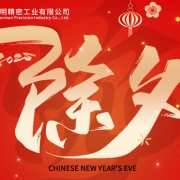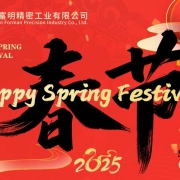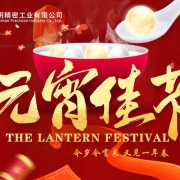Why Laba Festival Is Important to Chinese People?
China is renowned for its rich history and vibrant traditions, and the Laba Festival (腊八节) is a shining example of this cultural heritage. Falling on the eighth day of the twelfth month in the traditional Chinese lunar calendar, this festival marks the beginning of preparations for the Lunar New Year. For Chinese people, it is more than just a celebration; it carries profound historical, cultural, and emotional significance.
In this article, we explore the history, traditions, and importance of the Laba Festival, giving our international audience a deeper understanding of this unique Chinese holiday.
The Origins of the Laba Festival
The Laba Festival dates back more than 1,000 years to the Northern and Southern Dynasties (420–589 CE). The name “Laba” combines “la” (腊), meaning the twelfth lunar month, and “ba” (八), meaning the eighth day. Originally, it was a day of worship and offerings to deities and ancestors to give thanks for the harvest and pray for blessings in the year ahead.
Over time, the festival also became associated with Buddhism. According to Buddhist legend, on this day, Siddhartha Gautama (the Buddha) attained enlightenment after consuming a porridge-like meal following years of asceticism. As a result, eating Laba porridge has become one of the central traditions of the festival.
The Importance of the Laba Festival
- Spiritual and Cultural Significance
- The Laba Festival symbolizes gratitude, reflection, and preparation for the upcoming Lunar New Year.
- It embodies Chinese values of family, unity, and respect for ancestors, which remain deeply rooted in society.
- A Connection to Nature
- Historically, the festival celebrated the harvest, giving thanks to the Earth and gods for providing food and shelter.
- Even today, Laba Festival serves as a reminder of the harmony between humans and nature.
- Family and Community Bonding
- The festival fosters stronger connections among family members, friends, and communities as they share Laba porridge and exchange blessings.
- Preservation of Tradition
- Laba is a symbol of cultural preservation, a way for younger generations to understand and embrace Chinese traditions.
Laba Festival Traditions
1. Eating Laba Porridge (腊八粥)
The highlight of the Laba Festival is the preparation and sharing of Laba porridge, a warm, nutritious dish made from glutinous rice, red beans, peanuts, lotus seeds, dried fruits, and other grains and nuts. Each ingredient has symbolic meaning, such as longevity, prosperity, and good health.
This hearty meal is shared with family and friends, symbolizing unity and blessings for the coming year. In some regions, people also offer Laba porridge to ancestors and neighbors as an act of goodwill.
2. Pickled Garlic (腊八蒜)
In northern China, the Laba Festival is also known for its tradition of pickling garlic. Cloves of garlic are soaked in vinegar, turning green over time. This flavorful condiment is often served with dumplings during the Lunar New Year celebrations.
3. Worship and Prayers
Historically, the Laba Festival included rituals to honor deities and ancestors. Although this practice is less common today, many still take the time to reflect and pray for a prosperous year ahead.
How the Laba Festival Is Celebrated Today
Modern celebrations of the Laba Festival are a mix of traditional and contemporary practices. Families still gather to prepare Laba porridge, and temples distribute free bowls of porridge to visitors as a gesture of goodwill. Schools and communities host cultural events to teach children about the significance of this holiday.
For businesses, Laba Festival is an opportunity to express gratitude to employees, customers, and partners. Companies often distribute symbolic gifts, such as small bowls of Laba porridge or red packets, to foster goodwill and unity.
FPIC’s Wishes for Laba Festival
At FPIC – Shenzhen Forman Precision Industry Co., Ltd., we value traditions like the Laba Festival because they remind us of the importance of gratitude, unity, and preparation. Just as the festival marks the start of a new year, we are committed to starting 2024 with renewed energy and dedication.
Our wiring harness solutions, including medical wiring harnesses, industrial wiring harnesses, automotive wire harnesses, and energy storage cable assemblies, are designed with precision, reliability, and care. As we celebrate this meaningful holiday, we extend our heartfelt gratitude to our employees, customers, and partners for their unwavering trust and support.
Conclusion
The Laba Festival is much more than a cultural event; it is a time for reflection, gratitude, and togetherness. By celebrating this ancient tradition, Chinese people honor their heritage while looking forward to the opportunities of a new year.
We invite our global audience to join us in learning about and appreciating this unique festival. At FPIC, we believe in fostering connections, just as the Laba Festival connects people to their roots, families, and communities.
Wishing everyone a warm and blessed Laba Festival. Let’s work together to achieve new milestones in the year ahead!
Contact FPIC
📧 Email: info@sz-fpi.com
🌐 Website: www.sz-fpi.com
Whether you’re in need of custom wiring harness manufacturing or want to learn more about our products, FPIC is here to help. Let’s create success together!









